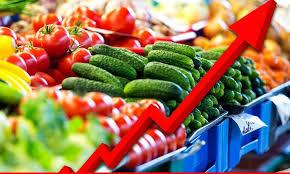A senior economist from the United Nation's (UN) Food and Agriculture Organization (FAO) told Reuters that food inflation could be imminent as people and governments panic hoard food and supplies amid the COVID-19 pandemic.
"All you need is panic buying from big importers such as millers or governments to create a crisis," said Abdolreza Abbassian, senior economist at FAO.
"It is not a supply issue, but it is a behavioral change over food security," Abbassian said. "What if bulk buyers think they can't get wheat or rice shipments in May or June? That is what could lead to a global food supply crisis."
Consumers from Asia to Europe to the Americas have been panic hoarding food at supermarkets as governments enforce strict social distancing measures to flatten pandemic curves to slowdown infections.
Grain futures are green on Monday morning, have caught a bid in the last several sessions, led by soybean, oats, and wheat. Investors are starting to pile into grains as the demand for food staples (especially bread, flour, pasta, and crackers) has been elevated.

France's grain industry has seen surging demand and struggles to find enough truck operators and staff to keep factories running as panic buying of flour and pasta has led to an increase in wheat exports.
European countries have enforced strict measures at their boarders amid the virus crisis that is devastating Italy, Spain, Germany, France, Switzerland, and the UK. This has led to food supply disruption across several European countries.
Inflationary pressures could be nearing for food prices as the stockpiling continues. Combine this with a crashing global economy and high unemployment, and maybe stagflation is ahead.
Here's what Daniel Lacalle, chief economist at the wealth management firm Tressis Gestion, recently said about the threat of stagflation:
"It is very likely that the shutdown of major developed economies will be followed by a shutdown of emerging markets, creating a supply shock as we have not seen in decades. Taking massive inflationary and demand-driven measures in a supply shock is not only a mistake, it is the recipe for stagflation and guarantees a multi-year negative impact generated by rising debt, weakening productivity, rising inflation in nonreplicable goods while deflation creeps into official headlines, and economic stagnation."
Could surging food prices, a crashing global economy, and high unemployment be the catalysts for what unleashes riots across the Western world?
Commenti
Posta un commento